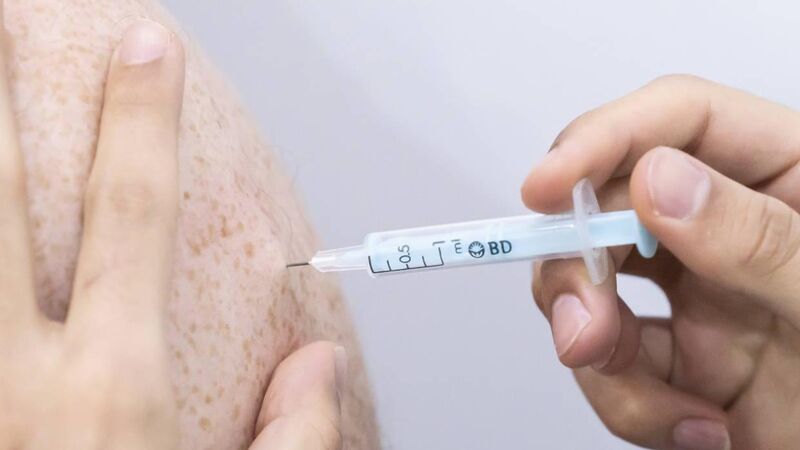So many questions over issue of reactions to Covid vaccine

Health authorities should consider running an information campaign about reporting adverse reactions to vaccines, says a coroner.
We were sitting around a café table. The waitress was standing beside us, notepad ready, and pen poised to take down our breakfast orders.
The Cork city coroner had said that the health authorities should consider running an information campaign about the reporting of adverse reactions to vaccines.
The comment followed an inquest into the death of a young Waterford soccer player days after receiving a Covid vaccine in the summer of 2021.
While it was decided that there was insufficient evidence that the vaccine was a cause of the young man’s death, the coroner commented that not all adverse reactions to vaccines were being reported.
He warned that the lack of hard data concerning adverse reactions to vaccines or other medications affects the ability of clinicians, medical experts, and regulatory authorities in carrying out their duties.
The more information that was available, the better able the authorities were to plan ahead and inform people of any potential risk, he pointed out.
“Hold on here a minute,” I said.
I was feeling the onset of the heebie-jeebies.
“Does anyone here know that you should or could formally report adverse reactions to vaccines?”
Nope. Nobody seemed to. I certainly didn’t.
“Does anyone know who you’re supposed to report them to?”
Nope.
We discussed suspected adverse reactions to, for example, the Covid vaccine. There was me. I contracted Covid in October, 2021, had a rough time of it for three months or so, but was recovering by Christmas. I went for a booster in early January, 2022, before returning to work.
Following the jab, there was an intense resurgence of symptoms. These included a debilitating fatigue which prevented me from working, driving, walking, writing, thinking clearly, or even talking to anyone for any length of time.
There was also a very high sensitivity in terms of my sense of smell to the point where I was unable to tolerate the smell or taste of coffee and was sickened by scented products of any kind.
These symptoms remained for the next two-and-a-half years, only diminishing at a glacial pace.
In real terms (and taking the initial bout of illness out of the equation), it took from January, 2022, to the end of June, 2024, with the support of Chinese medicine and homeopathic remedies, to bring about the return of my normal, full energy levels.
I am still unable to wear perfume and it’s only very recently (and I’m talking in terms of weeks here, not months) that I notice I can tolerate the smell or taste of real black coffee again.
Would any of this qualify as an adverse reaction to the Covid booster jab? And should I have reported it? Our table believed so on both counts.
But if so, to whom should I have reported it? We looked blankly at one another as the teapot, mugs, milk-jug and plates of scrambled egg, toast, bacon, sausages and black pudding started to arrive.
After that, the stories came thick and fast. Someone recalled how a family member had gone into anaphylactic shock after receiving a Covid vaccine. The patient was hospitalised and survived, but has experienced a range of symptoms ever since, ranging from debilitating joint pains and aches and stiffness to an inability to tolerate penicillin.
Was that a possible adverse reaction to a vaccine? Who knows. Had it been reported as a suspected adverse reaction by the family? The person said they didn’t even realise that you could report suspected adverse vaccine reactions or, indeed, have any idea who they should be reported to.
Someone else had a previously healthy-as-a-horse friend who contracted Covid early on, then had all the jabs but has suffered a series of health issues since, including a painful and immobilizing stiffness.
Was this caused by the virus or the vaccine? Who knows? But should the patient have reported it? Yes, it definitely should have been reported, we thought.
There was, another person recalled, a good friend, who to this day stoutly attributes a sudden death in the family to a reaction to a Covid vaccine.
At this point, of course, it’s all anecdotal and none of us were medical professionals, but could any of it be important?
Nobody present was aware of any interest from the health authorities in receiving information from the public about even suspected adverse reactions to Covid-19 vaccines, or knew who they should report them to.
Later, I googled. There is indeed an organisation that has an online system through which members of the public can report suspected adverse reactions to a Covid-19 vaccine.
This is the HPRA, or the Health Products Regulatory Authority. Visit %This link goes to facebook%
Somebody asked me if I’d had my heart and lungs checked.
“What?” I said, a bit startled. ”Why?”
She had read, she said, that a significant number of former Covid/Long Covid patients were now experiencing problems in the heart and lungs.
“Might be worth checking out,” she commented.
Oh dear God. There is a sense that now that the pandemic is over, people just want to forget about it. But, as the saying goes, it ain’t over til the fat lady sings.







 App?
App?




